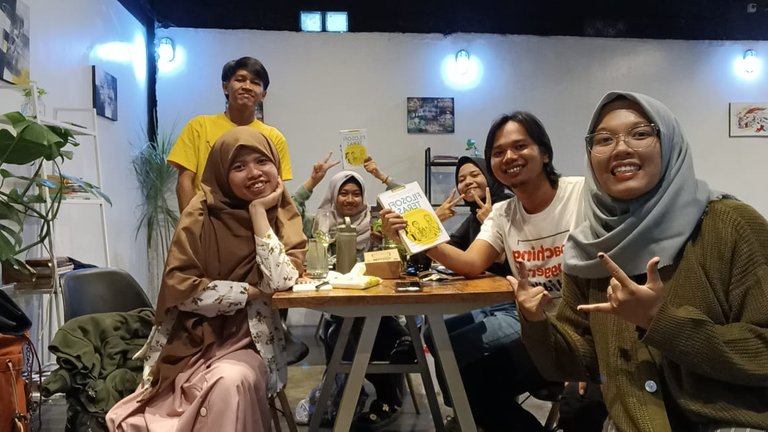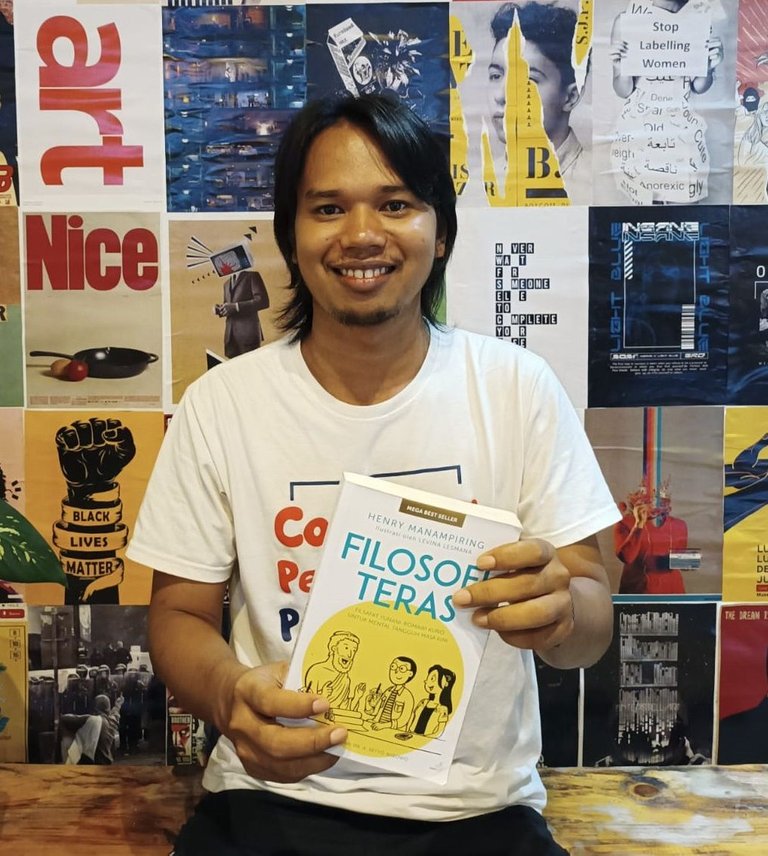Have you ever wondered about the real purpose of coffee shops beyond casual meetups and spending money on dates?
In the charming urban hub of Yogyakarta, Kineta Coffee & Public Sphere emerges, catering to the diverse preferences of individuals when it comes to visiting a coffee shop.
Whether it's for studying, work, discussions, or even just looking for free Wi-Fi, Kineta offers a captivating space that accommodates various needs and desires.
Tucked away at Jalan Nitikan Baru No. 40, Sorosutan, in the heart of Umbulharjo District, this hidden gem is poised to redefine the coffee experience.
Kineta is a relative newcomer to the vibrant coffee scene of Yogyakarta. This industrial-themed coffee shop started brewing at the beginning of 2021.
The name "Kineta" derives from the Greek language, meaning vigor, enthusiasm, and activity.
This aligns perfectly with the coffee shop's slogan, Bukan Bangunan, Kineta adalah Suasana (Not Just a Building, Kineta is an Atmosphere).
That being so, when you step foot in this place, you will truly encounter a unique atmosphere. Kineta offers three distinct spaces to cater to different preferences.
The first is the air-conditioned indoor area, providing a comfortable setting. Afterward, there is the outdoor space adorned with lush trees, creating a refreshing ambiance.
In the last place, there is my personal favorite, the semi-outdoor area, which offers a perfect blend of nature and comfort.
One striking feature adorning the walls of Kineta is the bookshelves filled with an intriguing collection of books.
The best part?
They are available for free reading. The book selection encompasses captivating themes, steering away from the mainstream choices.
I've visited Kineta twice, and on my second visit, I was "glued" to be invited to the mouthpiece in a discussion on the book Filosofi Teras by Henry Manampiring.
This book has up to now reached its 50th printing and is considered highly relevant to the current state of Indonesian society.
As stated in the Survei Khawatir Nasional (National Worry Survey) mentioned at the beginning of the book, Om Piring (as the author is fondly called) reveals that 63% (two-thirds) of the surveyed individuals expressed concern about their lives.
Based on an interview with Dr. Andi, a mental health specialist, Om Piring has written that worries are not merely a matter of the mind. Our psychological condition is closely intertwined with our physical health.
Every single day's worries we experience shouldn't be taken lightly, as they not only make it difficult for us to find inner peace but also pose risks to our physical well-being.
Prolonged periods of stress and anxiety can lead to various physical ailments, such as weakened immune systems, disrupted sleep patterns, increased blood pressure, and digestive problems.

As the clock struck past 7 p.m., the scheduled time for the discussion, there was still no sign of it commencing.
I received a message inquiring whether the discussion was indeed taking place or if it had been canceled.

After all, according to the poster, this 56th discussion was supposed to be live-streamed on Instagram @klubbukumain2 at precisely 7 p.m.
Here is where I began putting into usage the teachings of Stoic, recognizing that I couldn't control the punctuality of the discussion participants.
However, what I could control were my actions and decisions. With this in mind, I made a conscious choice to arrive at Kineta in time.
Recognizing that the only thing within my control is myself, I made a conscious decision to arrive at Kineta at 6 p.m.
In Stoicism, the fundamental principle known as the "dichotomy of control" is well recognized. Epictetus famously stated, "Some things are up to us; some things aren't up to us."
By all means, the aspects within our control are indeed limited, as Stoicism teaches us. They encompass our judgments, opinions, perceptions, desires, goals, thoughts, and actions.
There are numerous aspects that are beyond our control. These include the actions of others, the opinions of others, our reputation and popularity, our health, wealth, ethnicity or heritage, the weather, and many more factors that are outside the realm of our influence.
Stoicism has often been misunderstood as promoting a passive acceptance of fate and a lack of effort. However, it could be argued, this assumption is far from the truth.
If we examine the lives of many Stoic philosophers, we find that they were not mere bystanders but actively engaged individuals.
Among them were notable figures such as merchants, politicians, and even emperors like Marcus Aurelius.
In Stoicism, happiness is not seen as the ultimate goal. It is considered a byproduct of living virtuously and controlling negative emotions.
Stoics point up the importance of developing virtue, which involves mastering negative emotions and cultivating qualities like wisdom, courage, and justice.
The word "virtue" originates from the Latin term "virtus," which is derived from the Greek word "Arete."
Arete carries the meaning of embodying and manifesting our fundamental nature and essence to the best of our abilities in a healthy and commendable manner.
Nowadays, we could interpret it as living the best life possible in accordance with our potential.
The individual is created with unique qualities and abilities. Some excel in writing, singing, or various other skills. When someone is able to perform something to the best of their abilities, even without reward or payment, it could be seen as a manifestation of Arete.
Stoicism teaches us to strive for excellence in whatever we do, regardless of the judgment of others or whether we're paid for it or not.
The Stoic believes that everything in the universe is interconnected, including the events that occur in our lives. The fact that you are reading this text is the result of a long series of events, not merely a coincidence.
There is much to learn from Stoicism, as it provides valuable tools such as controlling interpretation and perception.
Nevertheless, as I am limited to writing a thousand words here if you're keen, you could read the book Filosofi Teras by Henry Manampiring if you understand Bahasa.
You're encouraged to join the Stoicism enthusiasts community in Indonesia in the form of a Facebook group. Please search for "Stoic Indonesia" on Facebook.
For English readers, the book How to Be a Stoic: Using Ancient Philosophy to Live a Modern Life by Massimo Pigliucci might be suitable for you.
Last but not least, if you're interested in a coffee shop with a bookish ambiance, Kineta should definitely be on your wishlist [mhg].